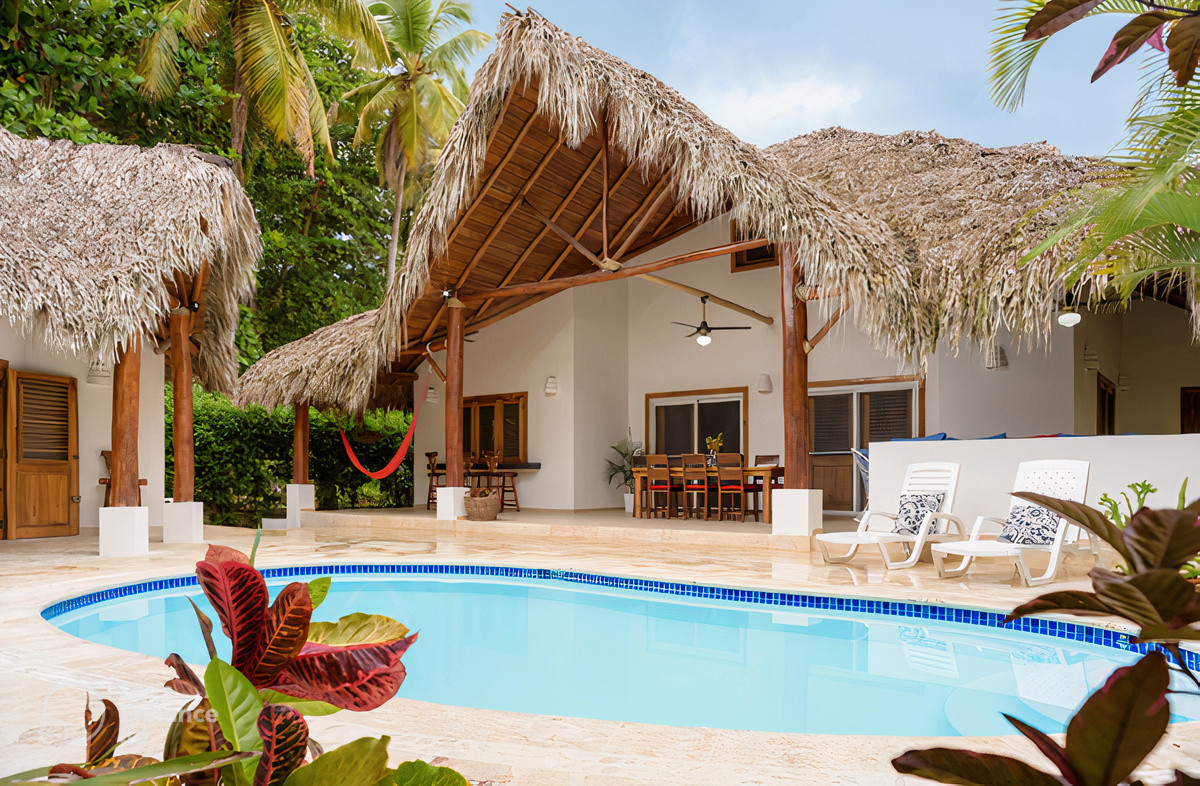15th February 2023
How to get a real estate loan from a Dominican bank?

Buying real estate in the Dominican Republic can be an exciting opportunity for foreigners looking to invest in a new property. However, financing a real estate purchase in a foreign country can be a complex process. If you do not have the cash up front, obtaining a real estate loan from a Dominican bank is a crucial step in making your dream of owning property in the Dominican Republic a reality.
The Dominican banking system offers a range of options for obtaining real estate loans, with various interest rates, repayment terms, and requirements. In this article, we will explore the key factors that you need to consider when applying for a real estate loan from a Dominican bank, including the necessary documentation and eligibility criteria. With the right guidance and preparation, obtaining a real estate loan from a Dominican bank can be a straightforward process that sets you on the path to realizing your dream of buying a real estate property in the Dominican Republic.
Table of contents:
I. Eligibility Requirements
When it comes to obtaining a real estate loan from Scotiabank in the Dominican Republic, certain documents will be required to pre-qualify. These include a copy of your passport and any other form of identification such as a driving license. Additionally, the bank will need to see your last two tax returns as well as an employment letter if you are currently employed. Finally, a bank reference from your main bank is also required. Having these documents ready will help make the process of pre-qualifying for a real estate loan smoother and more efficient.
When looking for a property to finance with a loan from a bank, there are certain requirements to keep in mind. The bank will not finance properties with a fully thatched roof or a fully wooden roof. However, it may be possible to finance properties with a small portion of these materials. Additionally, the property should not be located in an isolated area or a bad neighborhood. It is important to keep these factors in mind when searching for a property to finance with a loan from a bank in the Dominican Republic.
II. Steps to Apply for a Loan
When applying for a real estate loan in the Dominican Republic, it's important to do your research and find the bank that best suits your needs. There are several banks to choose from, and each bank may have different requirements and interest rates. In our practice, we tend to work with Bank Santa Cruz and Scotia Bank. Once you've selected a bank, you'll need to prepare all the necessary documents, including a copy of your passport, tax returns, and a bank reference.
After you've gathered your documentation, schedule a meeting with a loan officer at the bank. During this meeting, the loan officer will review your information, answer any questions you may have, and help you understand the loan process. If you and the loan officer agree on the terms of the loan, you'll need to sign the loan agreement and provide the necessary down payment.
.jpg?1675785293022)
III. Appraisal Process
Another point to consider when purchasing with financing is the mandatory evaluation of the house by an "Appraiser": After you've found the property you want to buy and have agreed on the purchase price you have to contact the authorized "Appraiser" by the bank to evaluate the property. The bank will use that evaluation report to determine if the house can be placed on a mortgage and also to know what is the assessed value of to provide the loan. Meaning that if the house is valued at $400,000, this is the amount as a base to give you the %, and not the agreed purchasing price.
Usually, that amount is 80 to 100% of the property's market value. And the bank will lend up to 70 % of the property valuation price. Make no mistake, if a house is for sale at 400K, valued at 360K, the banks will lend 252K (or 70%) to your buyer, so he or she needs cash of at least 148K, so that is 37% and then you can add extras (Laywer's fees, taxes, fixing the house, furniture, and else).
The Appraiser services are paid by the buyer, it takes approx. 72 hours for them to send the report to the bank. It’s recommended to have this step done before signing the Promise of sale (POS).
The promise of sale: The seller and buyer can choose to do this step before obtaining the full finance, but a contingency clause is recommended to be added in the POS at this point to cover financial loss in case of the loan is not approved.
These are 3 examples of contingency clauses that can be set on the Promise of Sale:
-
If financing is not obtained, the buyers lose all 10% deposit
-
If financing is not obtained, the buyers don’t lose anything
-
If financing is not obtained, the buyers only lose X about of the initial 10% - can be 1% which will go to the sellers. This “X” amount has to be agreed on by both parties.
Depending on the outcome and whether the loan is fully granted, the final act of sale can be signed.
IV. FAQs
1. Do the appraisers typically assess the value close to the selling price? Or do they undervalue it? Do they ever overvalue it and if so what happens in that case?
Very often the assessed value is below the asking prices, because of good market demand in Las Terrenas as well as for protection for the bank. They don't overvalue, but some properties may be for sale below the assessed value, which means that this owner is in the position to sell cheaper than market value.
We had another estimation made for a property by another appraiser a few months later and the value was even lower than the one I sent you.
2. From my meeting at Scotia Bank on my last trip I thought they provided up to 75% (not 60%) of the loan.
Well it depends, there is a difference between up to and reality which is based on several factors. You can imagine the reality is always lower. From experience, it is best to expect around 50% loan on average and not be overly optimistic when it comes to dealing with banks.
3. Most of the houses we are looking at have a thatched roof, is that an issue?
Thatched roofs are less desirable for banks because they represent a higher risk and thus the amount loan / the % ratio is usually lower 40 to 60% of the assessed value but only the bank will be able to tell the real amount.

4. What is the cost of the appraiser's evaluation?
It will depend on the property but the estimated cost is about 200 USD. If you are thinking to do an appraisal, it is a good idea but consider the following:
You need 2 things; to find the house you want and to have the money for it. Unfortunately, you cannot know if you have sufficient financing without doing the appraisal of the bank but for that, you need to know which house you want to buy. So you are in a loop. Here is what we would advise:
The first thing you should do is to pre-qualify, it doesn't imply any property in particular. Then, you can approach the problem by either doing a few appraisals before your trip and having that information in hand when you are here, or by finding the property, making an offer, and agreeing on the price, then doing the appraisal. In this second case, if the amount of the appraisal is high enough, then you'll go through the full loan application process which takes time, 2 weeks to 2 months.
The matter of time is important when purchasing a property with a loan because the owners are blocking the house for you, basically taking it out of the market and thus losing potential sales in case you don't obtain financing. To cover both parties, we usually do a promise of sale with an obligation to sell and penalties in case no, and the time to obtain the loan and penalties in case of no obtention. This gives better legal protection for all since it is signed before a notary public than the purchase offer which is signed privately between the parties. Remember legal fees are around 1% of the purchase price.
So... In short, you can come down here, visit the properties you think you'll like, evaluate the properties you seriously consider (1 or more), and if you have the results directly then sign a promise of sale to secure the house, if time is short then you can leave a power of attorney to the legal office we work with be enable them to sign for you even if you are back at home.
Conclusion
In conclusion, obtaining a real estate loan from a Dominican bank requires careful preparation and research. It's important to note that the appraisal process plays a crucial role in determining the value of the property and the amount of the loan you can receive. Make sure to invest time and effort into preparing for this process to increase your chances of obtaining a loan that meets your needs.
Finally, our final piece of advice to potential borrowers is to carefully consider the terms of the loan and make sure you fully understand all of the responsibilities that come with taking out a loan. If you have questions and would like to chat with one of our experts about getting out a loan, please fill out this contact form and we will be in touch with you shortly!
Rate this page
Click on star to rate it
Average rating 0/5. Vote count 0





